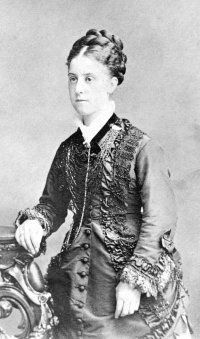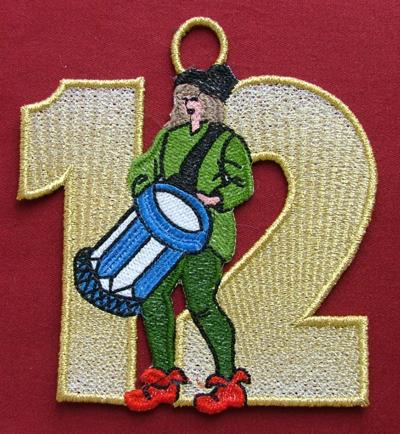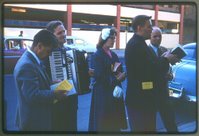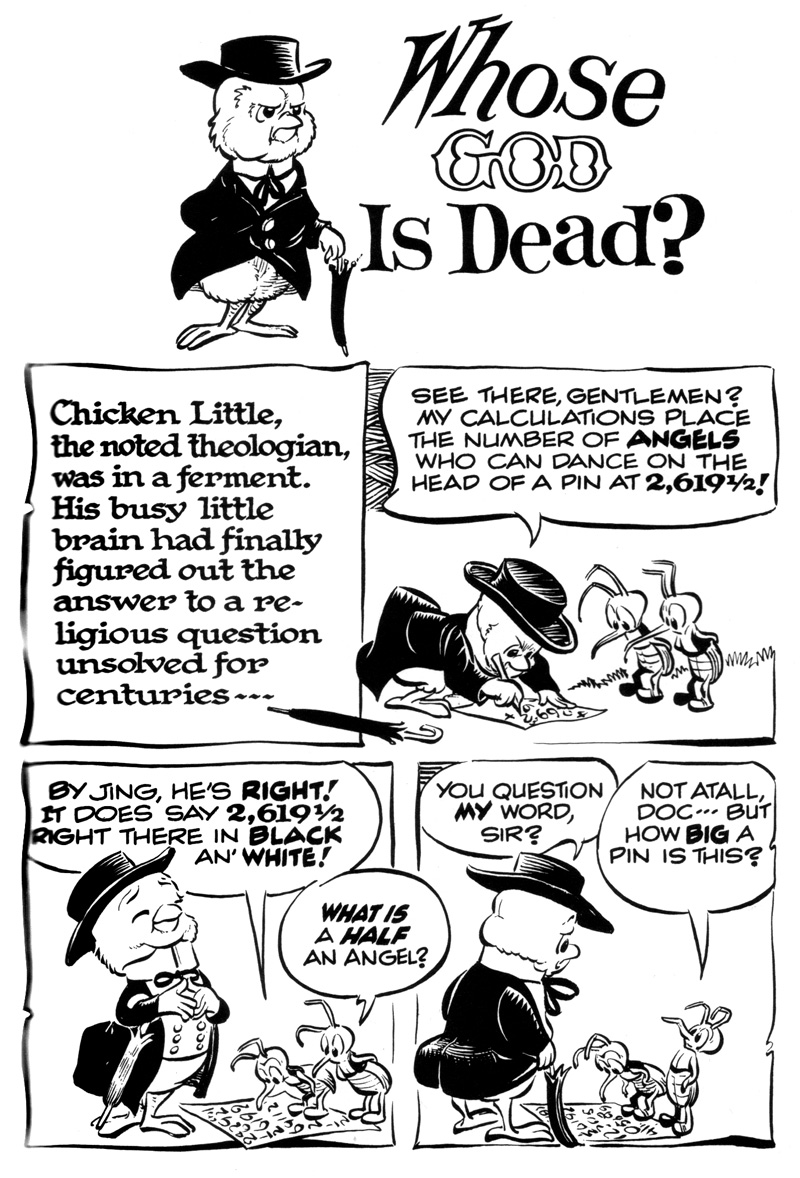A partridge in a pear tree

On the second day of Christmas, my true love gave to me
Two turtle doves,
And a partridge in a pear tree
...and so forth. The last verse is:

On the twelfth day of Christmas, my true love gave to me
Twelve Drummers drumming
Eleven Pipers piping
Ten Lords a-leaping
Nine Ladies dancing
Eight maids a-milking
Seven swans a-swimming
Six geese a-laying
Five golden (sometimes gold) rings
Four calling (or colly) birds
Three french hens
Two turtle doves and
And a partridge in a pear tree
The Twelve Days of Christmas is a children's rhyme that was originally published in a book called Mirth without Mischief in London around 1780. It was originally a memory and forfeit game and it was played by gathering a circle of players and each person took it in turns to say the first line of the rhyme. When it is the first player's turn again he says the second line of the verse and so on.

100 years later the game and rhyme were adopted by Lady Gomme as a rhyme that "the whole family could have fun singing every twelfth night before Christmas before eating mince pies and twelfth cake".
These are the twelve days beginning on night of the 25th of December and ending on January 5th, the eve of the Feast of The Epiphany. In the Middle Ages this period was one of continuous feasting and merrymaking, which climaxed on Twelfth Night, the traditional end of the Christmas season.

During the twelve days of Christmas, traditional roles were often relaxed, masters waited on their servants, men were allowed to dress as women, and women as men. Often a Lord of Misrule was chosen to lead the Christmas revels. Some of these traditions were adapted from older, pagan customs, including the Roman Saturnalia.

Some also have an echo in modern day pantomime where traditionally authority is mocked and the principal male lead is played by a woman, while the leading older female character, or 'Dame' is is played by a man. Some people give gifts, feast and otherwise celebrate on each of the twelve days rather than just on one day at Christmas.
Some Christians assign symbolism to the gifts in the song. One of the most common versions of these assigned meanings is:
• The 'partridge in a pear tree' means there is only one God and is also symbolic of Jesus (see Luke 13:34).
• The 'two turtle doves' are the Old and New Testaments.
• The 'three French hens' are the three Persons of the holy Trinity or the three virtues: faith, hope, and love, though according to Ace Collins' book "Stories of the Best Loved Christmas Songs", they represent the expensive gifts of the Wise Men: gold, frankincense, and myrrh.
• The 'four calling birds' are the Evangelists: Matthew, Mark, Luke, and John; or their Gospels. Which makes sense because they are "calling" out the story.
• 'Five gold rings' are the first five books of the Bible, or the Pentateuch.
• 'Six geese a-laying' refer to the six days of the Creation.
• 'Seven swans a-swimming' are the seven sacraments and the seven gifts of the Holy Spirit.
• 'Eight maids a-milking' are the eight Beatitudes.
• 'Nine ladies dancing' are the nine fruits of the Holy Spirit.
• 'Ten lords a-leaping' are the Ten Commandments.
• 'Eleven pipers piping' are the eleven faithful Apostles.
• 'Twelve drummers drumming' are the twelve doctrines in the Apostles' Creed.

This interpretation is usually taught with a story that British Catholics, suffering persecution in the 16th century, wrote the song with these hidden meanings. Although some sources, such as Snopes, disagree on this point. They point out that under the rule of Henry Vlll (1509-1547) ties were broken with the Catholic Church in Rome and the Anglican Church was established. After Elizabeth l established rule the “old worship” and open practice of the Catholic Church was forbidden following the Act of Uniformity. This was until Parliament passed the Catholic Emancipation Act in 1829. However it is not accurate to say that, without exception, anyone caught practicing Catholicism or possessing related material at any time during this 270 year period was immediately imprisioned or executed. The state’s tolerance of Catholicism waxed and waned with political exigencies of the times.

We can say with certainty that the song would have served as a pedagogical tool, however, some sources say that it was merely a "memory and forfeits game" originally played by children.

Sometimes "sent to me" is used instead of "gave to me"; also "five golden rings" is sometimes "five gold rings". Some argue that "gold" is correct and that "golden" is not. But because "gold" requires stretching into two syllables, the word "golden" seems to fit better. Additionally, some interpreters of the song argue that the five rings refer to coloring around the neck of birds such as pheasants, not jewelry.
The line four calling birds is an Americanization of the traditional English wording four colly birds, and in some places, such as Australia, the variation calling is supplanting the original. Colly is a dialect word meaning black and refers to the European blackbird Turdus merula.
The line four calling birds in some versions is four coiled birds. One version even had four mockingbirds.
The line nine ladies dancing in some versions is nine ladies waiting. The ladies themselves are also called dames a-dancing.

In Scotland early in the nineteenth century the song was started with:
"The King sent his lady on the first Yule day,A popingo-aye (parrot) Wha learns my carol and carries it away?"
I hope you have a Merry Christmas.







































 There are nuns and there are nuns. And then there's the Blessed Mother Theodore Guerin. She brought Catholic education to Indiana, endured an overbearing bishop and is believed responsible for at least two "miracles" after her death.
There are nuns and there are nuns. And then there's the Blessed Mother Theodore Guerin. She brought Catholic education to Indiana, endured an overbearing bishop and is believed responsible for at least two "miracles" after her death.